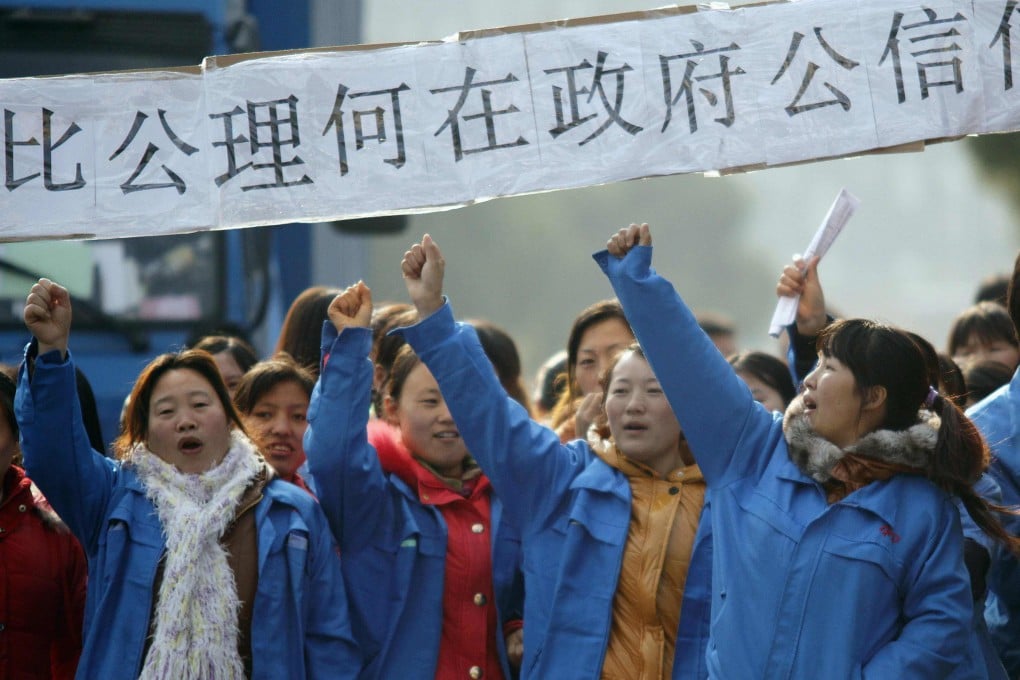Opinion | ‘So sue me’: why is China not doing more to protect workers’ rights?
- A viral video where a manager admitted that a sacking was illegal – but ‘so what?’ – has sparked a heated debate over worker rights and labour grievances

This month, a short video attracted a huge amount of attention on China’s social media. In the clip, a female executive was seen sacking a male employee. When he protested that she had violated the country’s labour law, she spoke rudely to him, admitting: “I’ve violated the law – so what?” He could go ahead and sue her, she said, but he would never get anywhere because she “knew people” in labour arbitration.
Having once been a factory worker for 10 years, I maintain a keen interest in labour relations; I also feel for my fellow workers.
China enacted comprehensive labour legislation only in 2008, with the Labour Contract Law, the Labour Dispute Mediation and Arbitration Law, and the Employment Promotion Law – all important legal milestones aimed at addressing workers’ grievances and protecting their rights. In particular, the Labour Contract Law states that companies must provide each employee with a written contract and stipulates guidelines on termination: there should be a 30-day notice or an extra month’s salary in lieu.
After outraged netizens started digging around for the identity of the woman and the company, the Beijing-based chip design company issued a statement on January 8, apologising for causing the furore. It said its executive had been reprimanded and suspended from work. It also said the sacked worker was let go about five months into his six-month probation because of a lack of competence, and that the termination was lawful.
